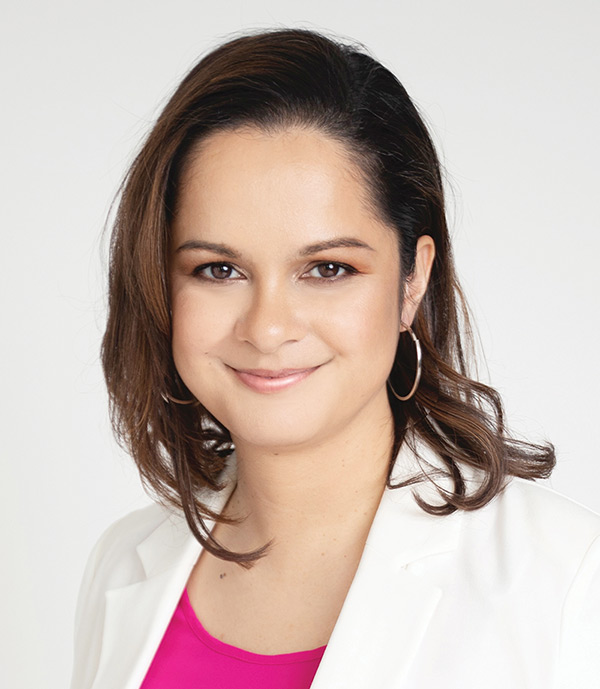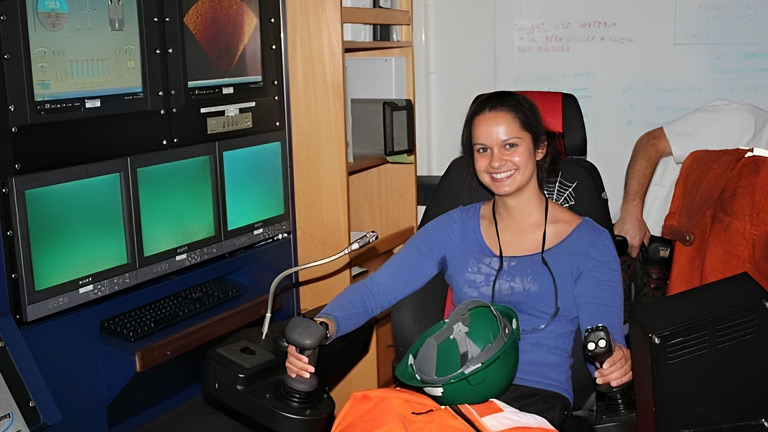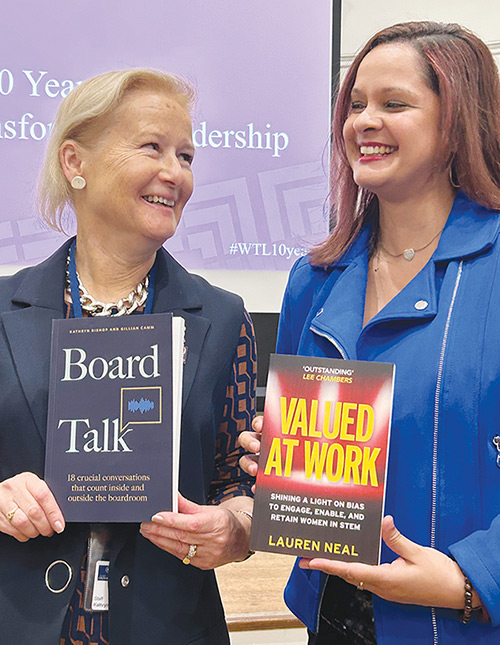 Lauren Neal
Lauren Neal
If you think traditional manufacturing is a male-dominated profession, try working as a deep sea engineer. That’s the position Lauren Neal found herself in after earning a master’s in electronic and electrical engineering from Scotland’s Robert Gordon University in 2006. Her experience eventually prompted her to write the book “Valued at Work: Shining a light on bias to engage, enable and retain women in STEM,” which was published earlier this year—and quickly became a bestseller—and is the namesake of her new consulting business. At the same time, Neal remains passionate about being a working engineer at her full-time job as a project manager. Taking time out of her hectic schedule, Neal recently spoke with Manufacturing Engineering (ME) Editor-in-Chief Steve Plumb. The following transcript is edited for length and clarity.
ME: Have you always been interested in technology and becoming an engineer?
Neal: Starting in about Year 6 (10-11-years old), I wanted to be a software engineer. People kidded me that I was going to take over Microsoft. But when I was 18, my technological studies teacher said, “Do you really want to go into computing where technology is changing so quickly, whereas the principles of engineering never change?” So, I kind of split the difference and opted to study electronic and electrical engineering specializing in computer engineering. When I graduated, there were 12 students in my program; I was one of only two women. But I didn’t think it was strange at the time. I thought different people just like different things.
ME: When did you realize that you were somewhat of an anomaly in your profession? And how were you treated by male counterparts?
Neal: I started to notice things working at a software application company, where I was basically relegated to the Help Desk setting up user names and passwords. I felt like I could contribute a lot more, so I moved to another company where I had a similar experience. When I asked about learning more about the equipment, they told me I’d have to go back to school and get a degree in chemical engineering.
Finally, at my next job I was given more responsibilities when I moved onto the subsea engineering team, which I had never done before. After about three months, my boss took a chance on me and sent me to a job site six hours away. That allowed us to build mutual trust with each other.
ME: How important is it to have that type of support?
Neal: I’m a big believer in advocacy and sponsorship. Every time in my career when I’ve had an opportunity to really develop and stretch myself, it’s because there’s been someone that has advocated for me to get that opportunity. I’ve also noticed what happens when that person’s not there.
ME: Who has advocated for you?
Neal: In most cases, they tend to be a lot older, almost retirement age with nothing to prove. For me, it’s mostly been men—in part because I’ve had so few female bosses. However, there was one woman that said very early on, “I want you to be better than me and do it faster than me.” No one’s ever said that to me again. What was so powerful about it was there was no competition, there was no queen bee. This has stuck with me throughout my career. To be a true leader, you need to create the next generation of leaders. We need to move away from the hierarchal king-of-the-castle approach. This has started to change, we’re seeing more agile work environments and a much more level playing field.
 During her first offshore work assignment in 2010, Lauren Neal operated an underwater ROV (remotely operated vehicle) that’s tethered to a vessel off the coast of Cornwall. This was during the pre-lay survey for a the subsea power cable to visually inspect the route and ensure no changes were required prior to installation.
During her first offshore work assignment in 2010, Lauren Neal operated an underwater ROV (remotely operated vehicle) that’s tethered to a vessel off the coast of Cornwall. This was during the pre-lay survey for a the subsea power cable to visually inspect the route and ensure no changes were required prior to installation.
ME: So once you got your sea legs so to speak, it’s been smooth sailing and everything in your career has been perfectly equitable?
Neal: Ha. Not exactly. When I share my experiences and some of the stories I’ve heard, people from other industries are very surprised. ... like I traveled back to the dark ages. When I worked on a platform in the North Sea, there initially wasn’t even a toilet I could use because they weren’t used to having a woman onboard. I couldn’t use the one in my cabin during the day, because my night shift counterpart was sleeping. They decided the helideck was the best bet, which was a long way up from where I typically worked pulling in cables at the bottom of the installation. It’s funny now, but it was a big problem at the time.
ME: Have there been many positive changes?
Neal: Not as many as I would like. A friend of mine had similar problems when she went offshore a few years ago; the path to drop off her laundry was through the men’s changing room. There’s not much thought about accommodating female workers. And it’s mostly the same, at least in this industry, in the various regions I’ve worked around the world.
ME: At the same time, DEI (diversity, equity and inclusion) is getting a lot of attention these days, especially at larger organizations. Is it just lip service or are they really changing their company cultures and making a difference?
Neal: I don’t think anybody knows how to solve the DEI problem. There’s too much focus on terminology right now. If we treat it like a simple problem that can be answered and the answer, for example, is a 50:50 female-to-male ratio, we are going to make sure we keep hiring women until we make that quota. But it doesn’t solve the underlying problem. We can’t just focus on recruitment.
Where I’m really prodding, and I touch on it in the book and speak about this quite regularly, is how much are companies looking at retention? Are women leaving faster than men? Do companies ask, “Why are you still here?” People are familiar with exit interviews, but what about “stay interviews?” There’s a lot of untapped talent that exists within organizations today and I believe the starting point for all DEI conversation should be, “How inclusive is the culture?” When someone is excluded at work, they may feel like it’s their fault or that they don’t have the right skillset. I encourage everyone to challenge themselves on that thinking. It may be the environment, so they should test it with people who are different than they are.
ME: Is that what prompted you to start Valued at Work and write your book?
Neal: It was a long time coming, starting as a throwaway comment after a bad day at work. My partner would say, “It’s all good book material.” Then last year, he encouraged me to actually write it. That’s when I started my research. I interviewed both men and women I found through LinkedIn.
 Neal (right) and Kathryn Bishop (left) at the 10th anniversary celebration of the University of Oxford’s Women Transforming Leadership program. Bishop, who heads the program and is an associate fellow at Oxford’s Saïd Business School, co-authored “Board Talk” with Gillian Camm.
Neal (right) and Kathryn Bishop (left) at the 10th anniversary celebration of the University of Oxford’s Women Transforming Leadership program. Bishop, who heads the program and is an associate fellow at Oxford’s Saïd Business School, co-authored “Board Talk” with Gillian Camm.
ME: Did you find a lot of common themes and stories?
Neal: Yes. It’s hard to believe, but there are still outright disrespectful comments being said to women. One woman I interviewed was told, “It doesn’t matter if you’re made redundant, you’ve got a husband” ... they had no problem saying it to her face (to justify letting her go during a reorganization). Other women have been told they got their job to check a diversity box.
I also observed more subtle trends, like women trying to get their voices heard during a meeting. When you finally do, the room goes silent, then they’ll either continue talking, like the woman said nothing, or dismiss it by saying, “Let’s park that and come back to it.” But they never do. This came up again and again in my research. Woman are left wondering, “Did I say it wrong? Did I not do it in the right way? Should I not have said anything?” There’s all that self-doubt creeping in, then the next time they’re in a meeting they’re not going to say anything. These subtle microaggressions chip away at you. ... But without an inclusive environment, even the most competent and confident women will leave.
ME: In the book, you talk about autonomy. Why is this important?
Neal: The complete opposite of autonomy is micromanagement, and I don’t think anyone wants to be micromanaged or wants to micromanage someone else. It’s an interesting phenomenon. When I talk about autonomy, it’s where someone feels trusted but also is able to put their hand up to ask, “Can you clarify this?” That’s why coaching and mentorship are so important. Once you’ve established that relationship, then you can move forward without having to check back with a manager. And those who have a good manager learn these management skills and can pass them on to the next person.
ME: How can employers counter workforce shortages?
Neal: Two things come to mind. One is to treat current employees well because there’s not a lot of others to replace them. It’s said that employees don’t tend to leave because of money. It’s other things: whether they feel valued, have development opportunities and so on. I’d also encourage greater collaboration with schools. Honestly, I don’t think there’s enough of that going around because everybody’s really busy. For me, it’s all about the pipeline. Young people coming into the industry now are really bright. We have to make sure there’s a strong pipeline and opportunities.
ME: How are different minority groups treated?
Neal: Intersectionality is definitely emerging, but it should be further along. Friends of mine note that there’s this “whataboutism” going on. If you call attention to one underrepresented group, someone points to others: “What about them? Or them?” I recently met Professor Sue Black at (England’s) Durham University, and she summed it up perfectly, “Life is easier when you’re part of a majority.” So she did something about it, creating a new group with similar views about inclusion (in the male-dominated software industry) that became larger and larger, and eventually had all these voices behind her. Sometimes you have to create your own majority that encompasses your values.
ME: Can you do this in a hybrid or work-for-home job?
Neal: Yes, but it’s more difficult and requires strong leadership—not necessarily management but whoever can bring a team together. I used to do this with my team on Fridays, even before COVID, with everyone coming into the office and meeting as a team for an hour in the afternoon. The first 30 minutes were spent talking about safety and lessons learned, then the second half was a free-for-all for anyone to share what’s on their mind—that human element of just letting people get things off their chest, which I think is really powerful, then we would often continue on to a nearby restaurant. During COVID, in a new team, we had “learn-about-me” sessions, where each person had about 7-8 minutes to talk about their background and their skills or share family photos.
ME: What are some things that companies get right?
Neal: One company I noticed was good at bringing people together through resource groups or what they called employee affinity groups... members who have a shared passion and shared values. But it’s important to have senior sponsorship—so DEI isn’t just offloaded to HR—such as directors or someone with enough political power to lead the group and ensure it remains important.
The other thing this company did is to show that vulnerability is OK. These really senior managers would openly share times when they have felt excluded, how it made them feel and what they wanted to do to make sure no one else feels like that. ... Instead of relying on their direct reports to tell them what’s going on, they roll their sleeves up and get in there. Imagine a CEO getting involved in a group about inclusion, where they meet people of all backgrounds and different levels in the organization. There are so many advantages to this.
It starts by truly communicating with each other through active listening—listening to understand, not just to respond. Walking a mile in each other’s shoes and sharing stories, then you can build relationships and understand where you share values.